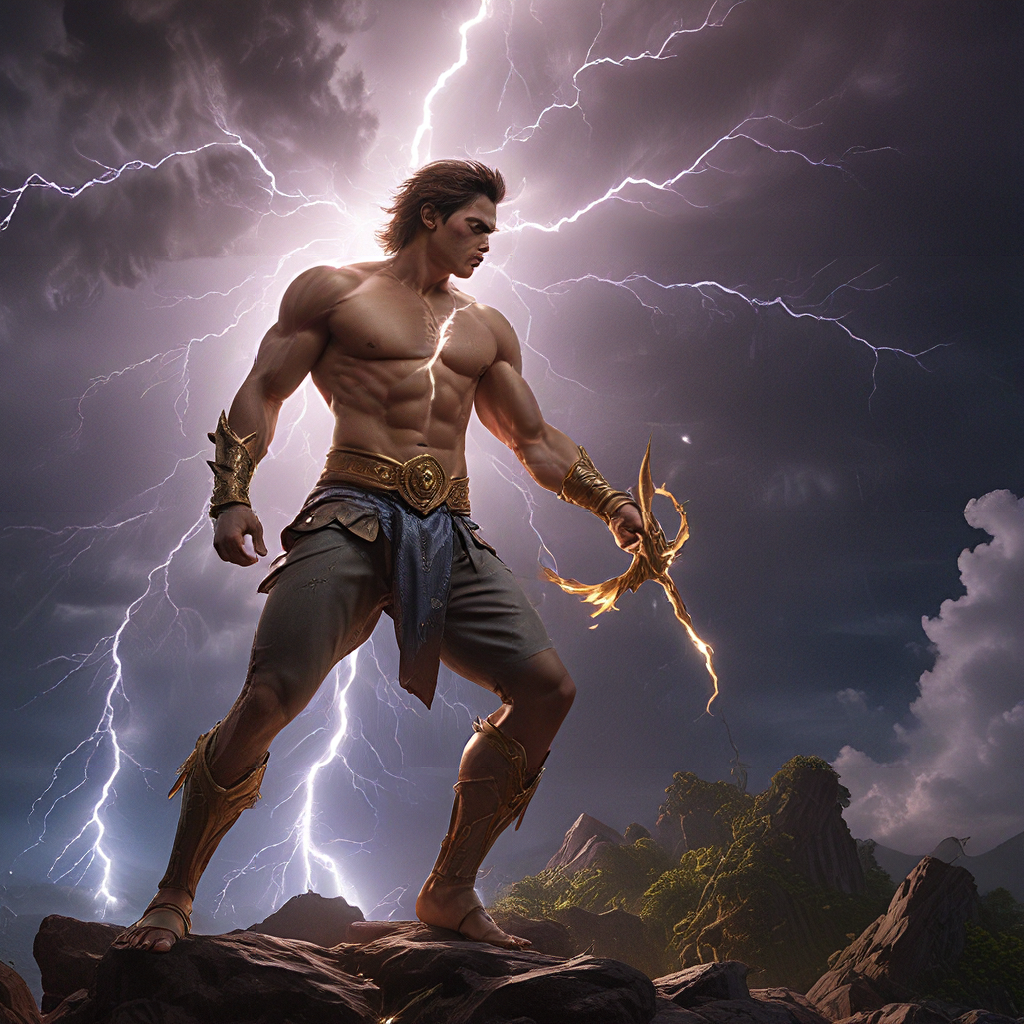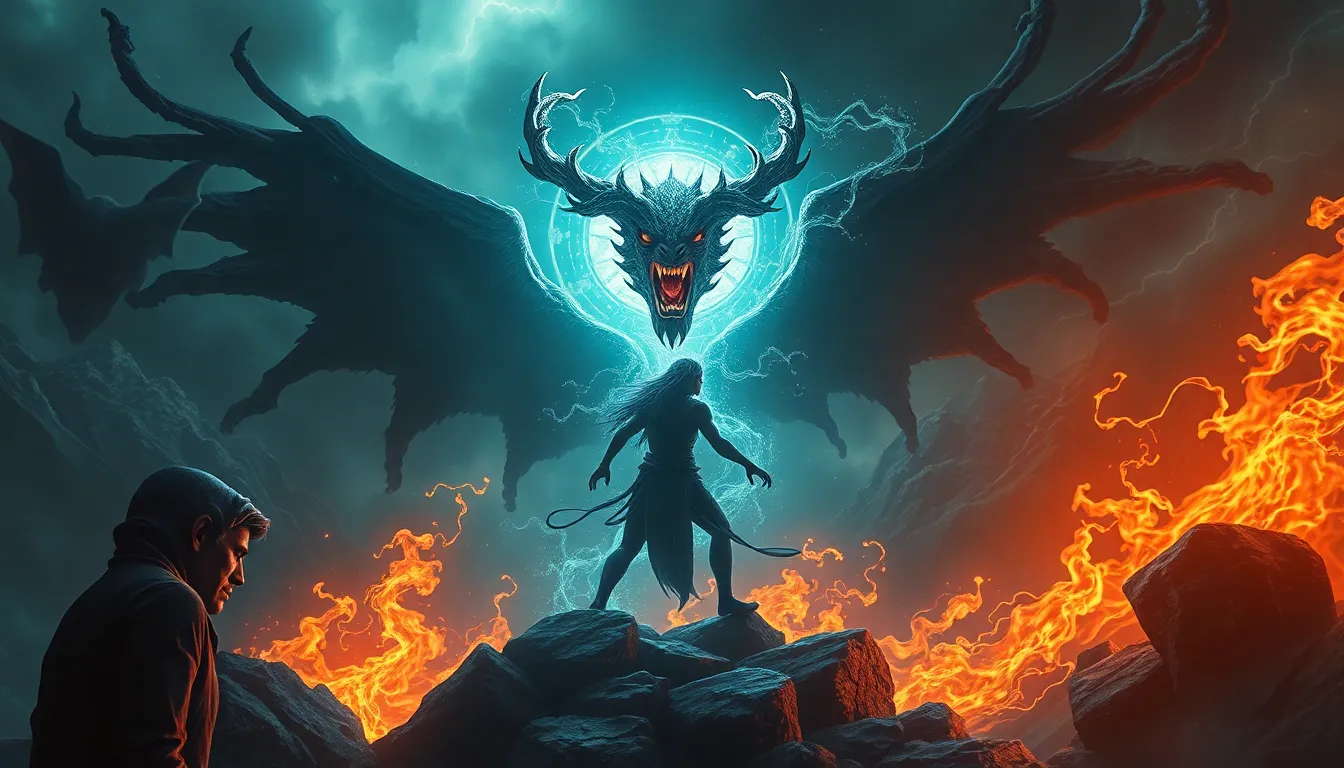The Power and Fury of the Gods: Lightning in Filipino Myths
Lightning, a dramatic and awe-inspiring force of nature, holds a prominent place in Filipino mythology. It's more than just a weather phenomenon; it's a powerful symbol woven into the fabric of ancient beliefs and traditions. The sudden flash of light, followed by the deafening roar of thunder, has captivated the imagination of Filipinos for centuries, inspiring stories that reflect their understanding of the world and the forces that govern it.
Thunder and Lightning as a Manifestation of the Divine
In the rich tapestry of Filipino folklore, thunder and lightning are often seen as manifestations of the divine. The ancestors believed that these celestial events were a way for the gods to communicate with humans, expressing their anger, displeasure, or even their blessing. The sudden and unpredictable nature of lightning, its ability to strike with devastating force, reinforced the idea that the gods were powerful, capricious, and deserving of respect and reverence.
The Lightning God: Different Interpretations and Names
Across the different regions of the Philippines, various deities are associated with thunder and lightning. In some myths, they are seen as separate entities, while in others, they are combined into a single powerful being. One of the most prominent figures in Tagalog mythology is Bathala, the supreme god, who is often depicted as wielding lightning as a weapon. In other regions, the lightning god is known by different names, reflecting the diverse cultural tapestry of the archipelago.
Kubulaw: The Demigod of Thunder and Lightning in Visayan Folklore
In Visayan folklore, one of the most notable figures associated with thunder and lightning is Kubulaw. He's not a god but a demigod, often depicted as a powerful warrior who rides through the sky in a fiery chariot, his thunderous voice echoing across the land. Kubulaw is both feared and revered, his power a reminder of the unpredictable forces of nature and the importance of seeking protection from the divine.
The Dual Nature of Lightning: Destruction and Creation
Lightning is often portrayed as a double-edged sword in Filipino mythology. It can be a force of destruction, capable of setting fires, bringing down trees, and even causing death. However, it's also seen as a creative force. The lightning's ability to spark fires was a vital tool for early Filipinos, allowing them to cook food, clear land, and even start new settlements. The association of lightning with fire also gave it a connection to fertility and the renewal of life.
Thunder and Lightning as a Warning from the Ancestors
In the Filipino belief system, the ancestors are not only revered but also believed to have a watchful eye over their descendants. Thunder and lightning were seen as a way for the spirits of the departed to communicate with the living, especially when they felt that their guidance was being ignored or when harm was being done to the community. A sudden lightning strike could be interpreted as a sign that the ancestors were displeased or that a wrong had been committed. This belief encouraged Filipinos to live in harmony with the natural world, respect their elders, and uphold the values passed down through generations.
The Symbolism of Lightning: Punishment, Justice, and Power
Lightning holds a powerful symbolism in Filipino mythology, representing various concepts. It's often associated with punishment, reflecting the belief that the divine forces can mete out justice for wrongdoing. A person who acted with malice or violated the laws of the community could be struck by lightning, signifying the divine retribution for their actions. However, lightning also represents the power and authority of the gods. Their ability to wield this force of nature reinforced their supremacy and the importance of respecting their will.
Lightning as a Catalyst for Transformation and Rebirth
Beyond its destructive and punitive aspects, lightning also holds a transformative power in Filipino mythology. The sudden flash and roar of thunder are seen as agents of change, symbolizing the potential for rebirth and renewal. The lightning strike could be interpreted as a way for the gods to cleanse the earth, starting a new cycle of growth and prosperity. In some myths, lightning is associated with the transformation of humans into supernatural beings, highlighting its power to bring about profound changes in individuals and communities.
The Role of Lightning in Rituals and Offerings
In traditional Filipino rituals, lightning was a significant element. People would offer prayers and sacrifices to the gods associated with thunder and lightning, seeking their favor and protection. These rituals often involved the burning of incense and the offering of food and drinks, symbolically appeazing the deities and ensuring their continued blessings. Lighting a fire, sparked by lightning, was a common practice, representing the summoning of the divine and the initiation of a sacred ceremony.
Modern Interpretations of Lightning Symbolism in Filipino Culture
While traditional beliefs about lightning are gradually fading, its symbolism remains relevant in modern Filipino culture. The dramatic image of a lightning bolt is often used in art, literature, and music, evoking a sense of power, intensity, and transformation. For many Filipinos, seeing a lightning strike can still evoke a sense of awe and respect for the forces of nature, a reminder of the ancient myths and beliefs that shaped their ancestors' lives. Lightning's legacy in the Philippines is a testament to the enduring power of mythology to capture and express the human experience, influencing cultural values and perceptions even in the modern age.
Frequently Asked Questions (FAQs)
1. What is Kubulaw's significance in Visayan folklore?
Kubulaw is a demigod associated with thunder and lightning in Visayan folklore. He's depicted as a powerful warrior who rides through the sky in a fiery chariot. Kubulaw represents the unpredictable forces of nature and the importance of seeking protection from the divine.
2. How is lightning portrayed as a double-edged sword in Filipino mythology?
Lightning is viewed as both a destructive and creative force. It can cause devastation, but it’s also essential for starting fires, which were vital for cooking, clearing land, and initiating settlements. This duality reflects the complex relationship between humans and the natural world.
3. What is the role of lightning in traditional Filipino rituals?
Lightning plays a significant role in rituals, often symbolizing the summoning of the divine. Offerings and prayers were given to gods associated with thunder and lightning, seeking their favor and protection.
4. What are some modern interpretations of lightning symbolism in the Philippines?
The symbolism of lightning continues to resonate in modern Filipino culture, appearing in art, literature, and music. It represents power, intensity, transformation, and a connection to ancestral beliefs.
5. How has lightning's symbolism in Filipino mythology influenced the culture today?
Lightning's symbolism has influenced Filipino culture by shaping their understanding of the natural world, their reverence for the divine, and their respect for ancestral values. This influence is still evident in modern interpretations of lightning, demonstrating the lasting impact of mythology on a culture's identity.



